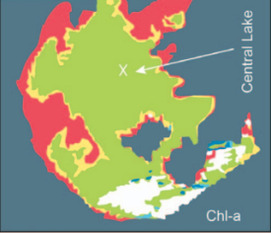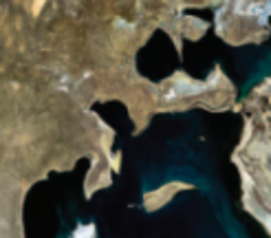Hydrogeochemical Processes and Controls on Water Quality and Water Management
The chemical constituents in water determine its potability, usability for agriculture and recreation, and interactions with biological systems. Anthropogenic processes have significantly influenced the geochemistry of water in many regions. Physical, chemical, and biological processes control the chemistry and chemical evolution of water in natural and contaminated systems. Advances in our ability to quantify these processes will improve our ability to manage our water resources, help us identify potential sources of contamination, and illuminate potential solutions to water-quality problems. Particularly impressive are the applications of chemical and isotopic tracers, which can track water movement and quantify water fluxes on the surface and in the subsurface. To better address societal needs, future advances will require a holistic approach to interpreting geochemical data.
Hydrogeochemical Processes and Controls on Water Quality and Water Management Read More »



